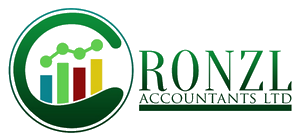ARE YOU PAYING TOO MUCH TAX IN YOUR BUSINESS?
Claiming expenses in the business is a very crucial part of reducing the tax due to the HMRC.
Usually, when the business owners do not claim expenses from the business, they may lose the tax relief dues when not claimed within the time frame.
However, care needs to be taken in claiming expenses appropriately, the reason for this is that when business owners claim tax relief inappropriately, the revenue could charge a penalty and interest on the tax unpaid.

Three ways of claiming expenses in the right way.
Every business is different, so the expenses claimed could be different.
There are three rules that could help to ensure that you are claiming the right expenses.
-
Wholly and exclusively for business purposes:
For an expense to be tax deductible, it has to be wholly and exclusively for business purposes.
If the expense has an element of private use, it should be apportioned and only the business part should be deducted.
If this expense cannot be safely apportioned, then it should not be disallowed.

Claiming expenses that have a revenue nature, not capital expenditure
Revenue expense is one that does not have a lasting feature.
If it would need to be replaced within a year, it most likely would be revenue.
If it’s could last between 1-2 years, the business owner would need to access this themselves as it can be subjective based on the purpose.
However, if it could be used for more than 2years it most likely would not be a revenue expense.
Also, expenses that relate to capital expenditure are also disallowed. E.g. depreciation, amortization, or cost of acquiring fixed assets like buying a property.
Claiming expenses within the accounting period.
The accounting period is the time covered by the return you are trying to submit.
Therefore the expenses that you are trying to claim the relief for must be within the period of the return under assessment.
There are certain times when there are exceptions to this rule.
An example is when an expense has been paid for before the start of an accounting period (this is for new business) they are allowed to claim the expenses as if it was paid for on the start date.

Example of expenses that could be claimed:
The following are examples of expenses that can be claimed by the business owners.
Subscriptions:
Professional and Medical
Magazine
Periodicals
Journals
Professional Costs:
Professional Fees
Personal Indemnity Insurance
Bank/credit card charges
Interest payment on rental properties
Agency Costs
Accountancy Costs
Secretary/Admin Assistant
Business Usage:
Mobile Usage
Printing
Stationary
Fax
PC Software
Hotel/Rental fees
Subsistence Allowance
Travel to and from Agency/Locum Work:
Car Hire
Car Lease Payment (apportioned if the car belongs to the business owner)
Maintenance
-Petrol
-Travel
This list is not exhaustive and all suggestions are advisory
Conclusion on Claiming expenses
The main goal is to ensure that tax relief that would reduce tax liability is properly claimed.
If you would like to read more, kindly click
This gives the business owners the peace of mind that is needed and helps the business to grow better.
